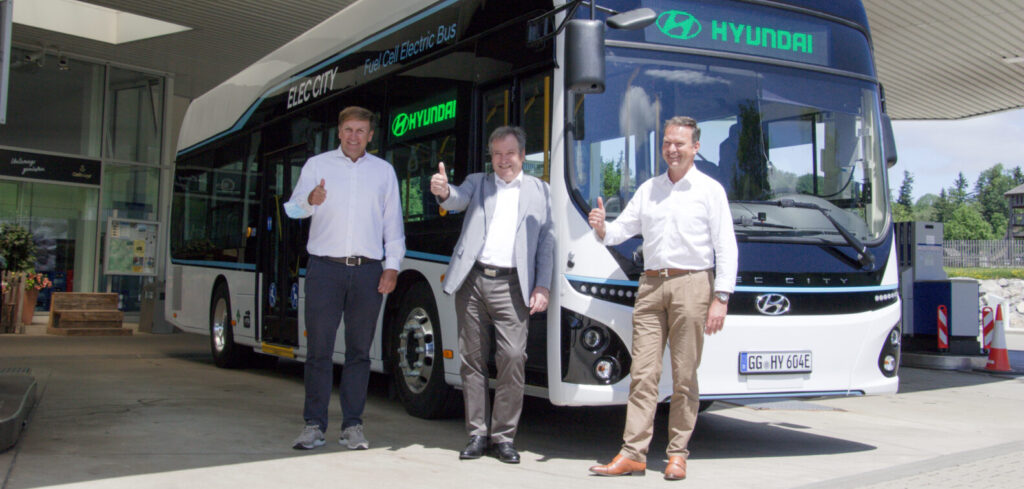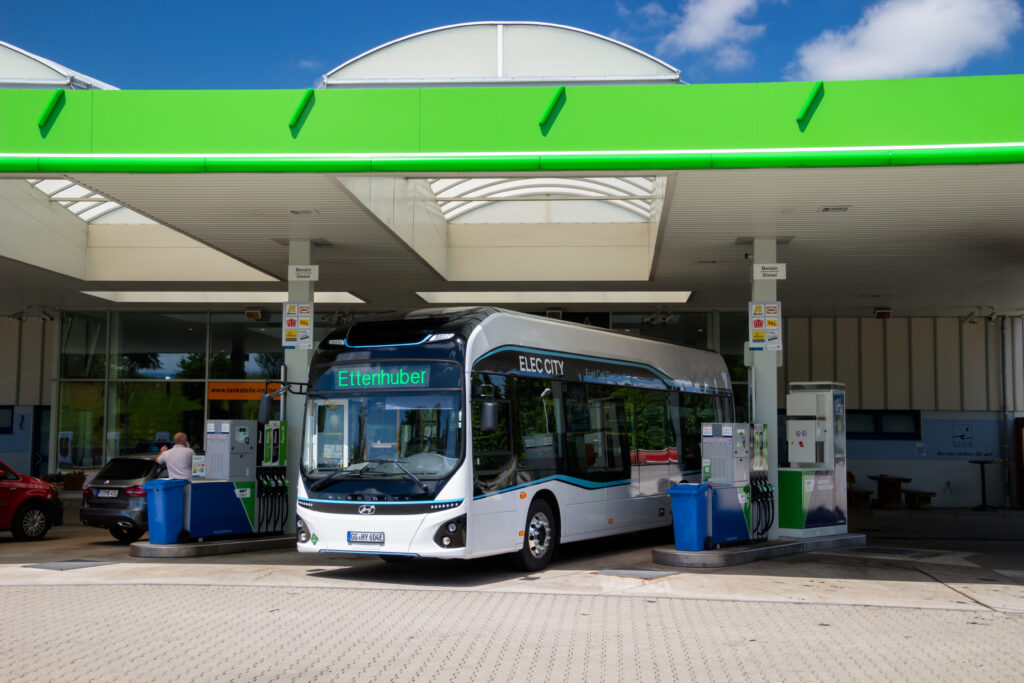Hyundai Motor Company will work with bus operators in Munich, Germany, over the coming weeks to run trials of the company’s hydrogen-powered Elec City Fuel Cell bus.
The bus is equipped with a 180kW high-capacity hydrogen fuel cell system, made up of two 90kW fuel cell stacks, both with a durable hydrogen diffusion layer and an electrolyte membrane, and with five hydrogen tanks storing 34kg of hydrogen in its roof, the bus has a 500km range.
The test bus was recently handed over to the OMV Hydrogen Refueling Station in Wendling, Bavaria, to operators Ettenhuber and Geldhauser. Both bus operators will alternate in taking the Elec City Fuel Cell bus on existing travel routes in Munich.
Hyundai plans to run test programs with four other bus companies this year, as it looks to gain insight from passengers and drivers, and aims to prove that hydrogen-powered buses can be used as a sustainable and efficient solution for commercial transportation.
The Elec City Fuel Cell was first made commercially available in 2019 in Korea, and 108 buses have been put into operation to date. Having been used on a multitude of bus routes in Korea, it is estimated that carbon emission output has been reduced by 7,700 tons in the country so far, compared with using conventional buses with internal combustion engines.
“With our leading fuel cell technology, Hyundai Motor is demonstrating how mass-produced Elec City Fuel Cell buses can help reduce CO2 emissions while providing clean mobility,” commented Martin Zeilinger, executive vice president and head of CV development tech unit, Hyundai. “Running these in-service trials will help us further develop our vehicles to meet European customer requirements.”
Hyundai states that it is researching ways of lowering the CO2 footprint of mobility solutions and is planning to promote hydrogen fuel cell technology as a powerful and clean transportation solution.



